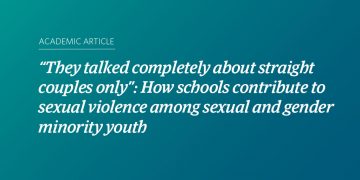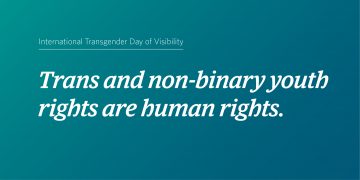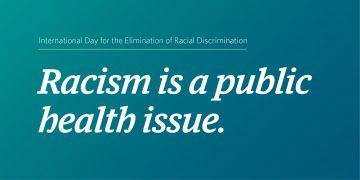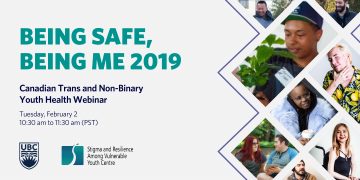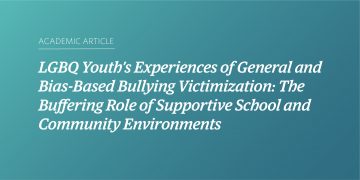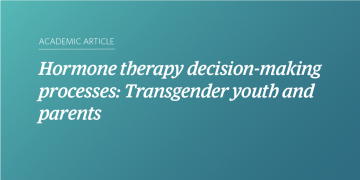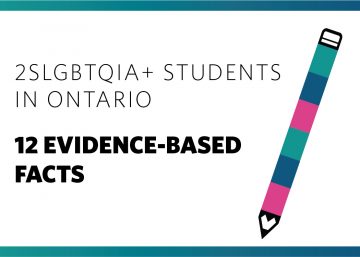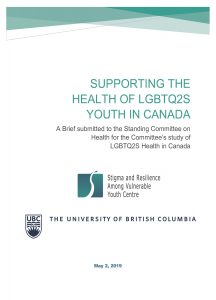“They talked completely about straight couples only”: How schools contribute to sexual violence among sexual and gender minority youth
This study examined contextual factors shaping sexual violence victimisation and perpetration among sexual and gender minority youth, with school playing a key role. Based on qualitative data from semi-structured interviews with 50 young people aged 14–26 years who self-reported sexual violence perpetration in the Growing Up with Media survey, the analysis demonstrates how schooling’s ‘hidden curriculum’ leaves sexual and gender minority youth ill-equipped to navigate the world of sexuality.
Trans and non-binary youth rights are human rights
International Transgender Day of Visibility is a day to celebrate trans folks and raise awareness about the discrimination and violence that targets them. On Transgender Day of Remembrance, we shared some of the challenges trans and non-binary youth are faced with. Today, we’d like to share some of the ways that trans and non-binary youth feel supported.
Racism is a public health issue
Every day is a day to act towards ending racism, and today is the International Day for the Elimination of Racial Discrimination (IDERD). We condemn racism in all its forms, and especially the anti-Black, anti-Indigenous, and anti-Asian racism and hate crimes that have surfaced throughout the pandemic at the hands of white supremacy. Hateful actions need to stop and white supremacy must be dismantled.
Join us for a webinar and Q&A about the links of provincial policy, IDs, and gender affirming care to trans and non-binary youth health
How is access to gender-congruent ID related to mental health outcomes? Does having a primary care provider increase access to gender affirming care and does this access change depending on the level of comfort towards the primary care provide? What is the link between Canadian provincial health services policy and access to gender affirming care? Join us for a webinar on February 2nd where we discuss the research behind these questions.
ÊTRE EN SÉCURITÉ, ÊTRE SOI-MÊME 2019 : Résultats de l’enquête canadienne sur la santé des jeunes trans
En 2014, et cinq ans plus tard, en 2019, les jeunes trans ou non-binaires de partout au Canada ont fait part de leurs expériences par l’entremise du Canadian Trans and Non-Binary Youth Health Survey (enquête canadienne sur la santé des jeunes trans et non-binaires). Menée par des chercheur·e·s issus d’universités et d’organismes communautaires du Canada, l’enquête comprenait des questions sur un vaste éventail d’expériences sociales et liées à la santé, ainsi que sur les facteurs de risque et de protection.
Hormone therapy decision-making processes: Transgender youth and parents
This study explored how transgender (trans) youth and parents of trans youth made decisions around hormone therapy initiation as well as trans youth experiences of barriers to care.
LGBTQ+ Students in Ontario: 12 Evidence-Based Facts
This fact sheet presents research findings about 2SLGBTQIA+ youth and their cisgender and heterosexual peers in Ontario, Canada, and beyond.
Supportive families and schools help prevent substance use among transgender youth
Trans youth in Canada face high levels of violence, and this can contribute to substance use. However, research at SARAVYC showed that even when transgender youth experience high levels of violence or discrimination, a supportive family and safe school can make a difference. Specifically, strong family and school connections are helping prevent transgender youth from […]
Supporting the Health of LGBTQ2S Youth in Canada
The federal government invited briefings regarding the health of LGBTQ2S+ Canadians. As a research centre dedicating to improving health equity among stigmatized and vulnerable youth, we recognized this as a vital opportunity to contribute our expertise and draw attention to the specific needs of LGBTQ2S+ youth in Canada.
